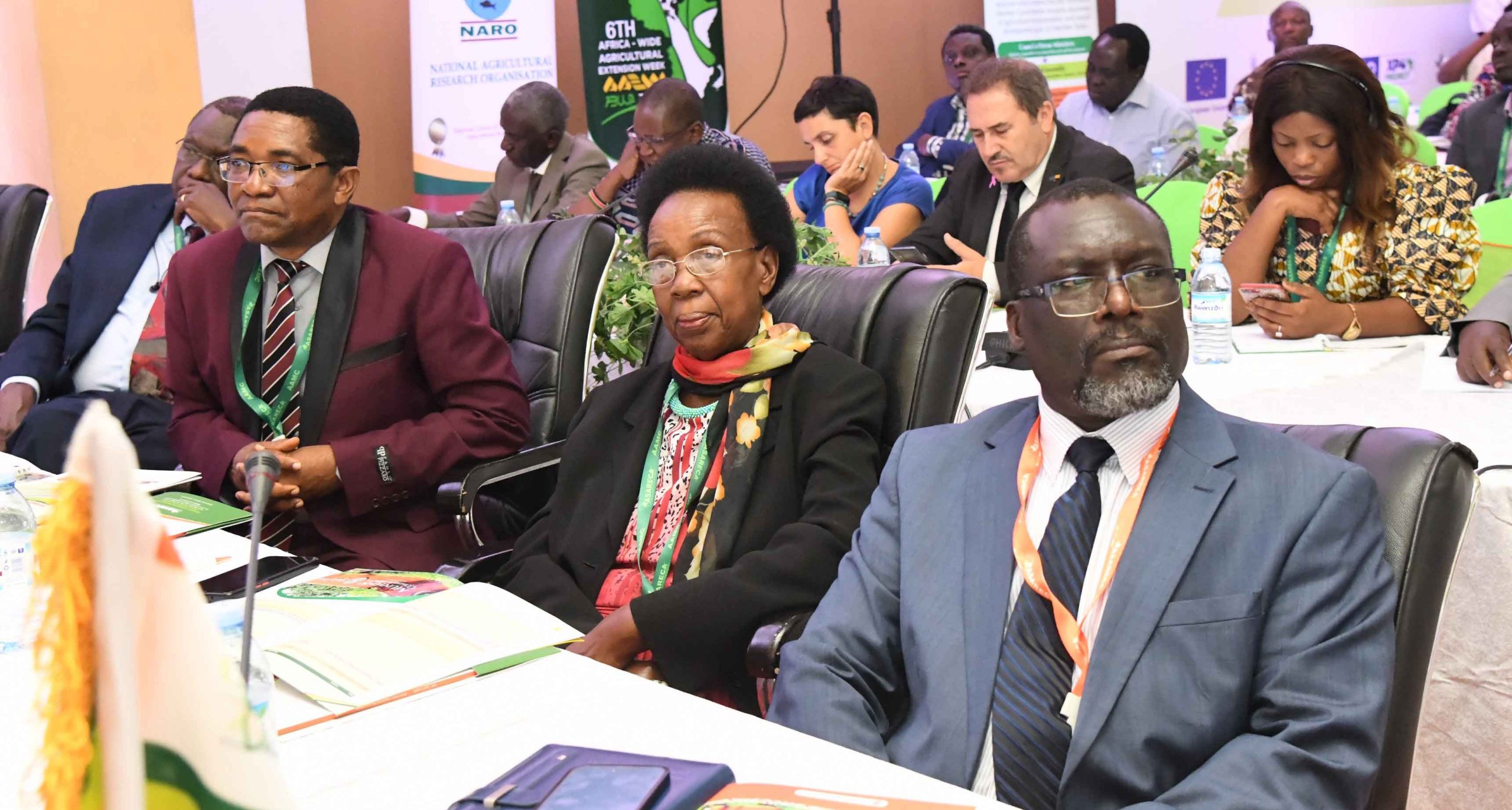Dr. Warinda makes strong case for financing ASARECA to stakeholders during AAMC-2023

BY BEN MOSES ILAKUT
ASARECA has over the last 29 years mobilised over USD 258 million to implement Agricultural Research for Development (AR4D) initiatives in member countries.
KAMPALA: ASARECA Executive Director, Dr. Enock Warinda, has made a passionate appeal to ASARECA Members States to settle their arrears in membership fees to the Association. Addressing ASARECA stakeholders from all-over Eastern and Central Africa and globally, during the ASARECA Agriculture Ministerial Conference (AAMC)-2023 on Thursday, May 17, 2023, Dr. Warinda noted that countries owe the Association more than USD 1.9 million, with only three (Tanzania, Eritrea, and Uganda) in good standing having cleared fees to zero balance. The other countries are in arrears to various extents.
Trinity of critical events
The ASARECA Agriculture Ministerial Conference (AAMC) is a flagship biennial event of the Association. The AAMC comprises the Council of Patron Ministers’ Meeting (CPM), the General Assembly, and the Scientific Conference. The theme of the AAMC-2023 is Building Resilient Food Systems to Feed Africa for Generations. It is informed by the current challenges that the food systems in Africa are facing, including the effects of climate change, the Russia-Ukraine war, emerging pandemics such as COVID-19, and transboundary pests and diseases, among others. These challenges continue to create disruptions in the agricultural food systems thus undermining food sovereignty.
“If paid, the money would enable us do amazing mega projects in our countries. We are over dependent on just one or two donors, yet our members have the potential to sustain the Association,” Dr. Warinda said to over 350 delegates on Day-One (ASARECA General Assembly, a key feature of the AAMC). During the General Assembly, Governance issues, Development, Programming Strategies, and Sustainability mechanisms were key issues of discussion.
Contributions to Finance joint mega projects
The Executive Director’s plea fell on ‘fertile ground’ with all the Ministers and their delegations agreeing that arrears to ASARECA must be paid latest March 2024. In addition, the Ministers also agreed to increase membership fees to USD 100,000 per year, from a mere 15,000 paid currently.
While presiding over the ASARECA Council of Patron Ministers Meeting on Day-Two of the AAMC, the Host, the State Minister for Agriculture, Uganda, Hon. Fred Bwino Kyakulaga, reiterated the need for member countries to fund their mother body. “ASARECA has played a critical role as a regional body in supporting the generation, transfer, and dissemination of agricultural technologies as well as facilitating market access within and across borders of member countries,” Kyakulaga said. “The only way we can support or define our new destiny is by supporting our funding mechanisms. We must ensure that we are timely in clearing our agreed contributions towards the good health of our coordinating and convening entity—ASARECA.”
Support by other Ministers
Commenting on financing, the minister of Agriculture and Food Security in South Sudan, Josephine Lagu Yanga, said: “We have a lot of work to do to ensure that the arrears are paid in the shortest time possible given the importance of our regional organization.”
ASARECA stakeholders spread over its 15 Member States (with the joining of Somalia) include: Line ministries responsible for Agriculture in Member States; ASARECA General Assembly; National Agricultural Research Institutes; ASARECA Board of Directors; ASARECA High Level Advisory Panel (HLAP); Agricultural extension umbrella bodies; Agricultural training and education institutions; Farmer associations; Associations of processors of agricultural products, service providers and consumers; Associations of agricultural businesses and related marketing agents; Organized women and youth groups working in agriculture; Non-governmental organizations (NGO’s) and Community Based Organizations (CBOs) involved in AR4D; Private sector partners; the CGIAR Centers; Regional Economic Communities (RECs); and Development Partners.
ASARECA Investments in Member States
Dr. Warinda noted that despite poor contributions from Member States, ASARECA has over the last 29 years mobilised over USD 258 million to implement Agricultural Research for Development (AR4D) initiatives in member countries. Out of these, USD 138 million was received directly by the Secretariat, which disbursed USD 101 million (73.5%) to member countries retaining only USD 37 million (26.5%) for operational costs.
A cross-section of participants drawn from the 14 ASARECA Member States participate during the AAMC in Kampala
Steller Achievements
Through these resources, ASARECA worked with the Member Countries to implement projects leading to: Development, dissemination and uptake of priority regional agricultural technologies such as improved crop and livestock varieties, integrated soil fertility and water management packages; development of agronomic and storage packages; Implementation of capacity strengthening partnerships at individual and organizational levels; Agriculture policy formulation, analysis, advocacy and reforms at national and regional level; Mitigation of effects of climate change and coordination of adaptation mechanisms; Enhancement of intra- and inter-country trade; Facilitation of communication, information and knowledge management.
Dr. Warinda explained the coordination capacities of ASARECA citing the Eastern Africa Agricultural Productivity Programme (EAAP), brokered and coordinated by ASARECA in which USD 120 million was disbursed directly to select countries by the World Bank. Through EAAPP, which was implemented between 2009 to 2014, Uganda, Kenya, Tanzania, and Ethiopia established Centres of Excellence for Research and Development for Cassava, Dairy, Rice, and Wheat respectively. The highly successful initiative led to the development and sharing of noble technologies across countries in Eastern and Central Africa and beyond.
He outlined ASARECA’s role as a Convener of priority regional events; Facilitator of regional interventions and generator of national and regional public goods, products and services; Coordinator of priority regional programs, projects and activities; Communicator of priority regional impacts; Catalyst of impact-oriented programs, projects and interventions; and Partnership broker with strategic partners at national and regional levels.
